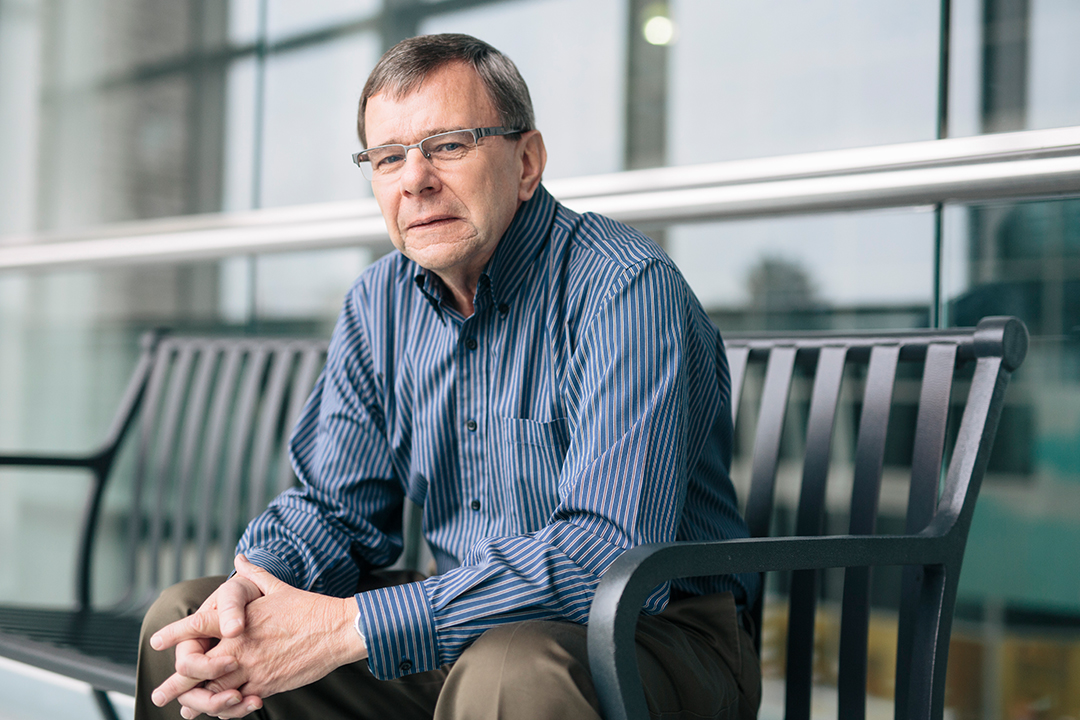
LFCE moves into next stage of development with new appointments as senior leaders retire
The University of Saskatchewan’s Livestock and Forage Centre of Excellence is moving into its third year of operation with three new leaders eager to transition the centre into the next stage of its development.
By Lana HaightEffective today, renowned University of Saskatchewan (USask) forage breeder Dr. Bruce Coulman (PhD) has been selected to lead the centre as interim director. An international search for a permanent director is underway.
Coulman, professor emeritus in the plant sciences department of the College of Agriculture and Bioresources, succeeds LFCE director Kris Ringwall who will retire at the end of October, enabling a two-week transition period.
“The LFCE is a unique site for innovative research, teaching and industry engagement that is already making a difference for livestock and forage producers across Western Canada, thanks in no small part to the leadership of Kris Ringwall,” said USask Vice-President Research Karen Chad.
“I am delighted that Bruce has agreed to take the LFCE into its next exciting phase of development which includes a focus on smart farming for enhanced productivity. He’s a highly regarded leader and award-winning forage researcher whose work has significantly advanced Canada’s livestock industry.”
Ringwall joined the LFCE in November 2018, days after the centre’s grand opening. Over the past two years, he has been unwavering in his commitment to establish the foundation of the centre as staff members from Termuende Ranch, Goodale Farm and the Beef Cattle Research Unit were consolidated into one team. With the people came the cattle, two herds that are now one at its new home base south of Clavet.
“Kris has brought three distinct operations together under one roof and set us on the path towards a new and exciting way of carrying out innovative livestock and forage production research that that supports sustainability, profitability and environmental stewardship,” said Dr. Angela Bedard-Haughn, the dean of the College of Agriculture and Bioresources.
Coulman is a leader in the breeding and genetics of perennial forage grasses and annual cereal forages, and has developed 22 forage crop cultivars over his 40-year career. In 2008, the Canadian Seed Trade Association honored him with the Canadian Plant Breeding and Genetics Award in recognition of his productive career. In 2014, he was honored with the Forage Industry Innovation Award by the Saskatchewan Forage Council for his research, teaching and student mentoring.
A USask alumnus, Coulman taught at McGill University for 17 years, during which time he served as plant sciences department chair for five years. He was a research scientist with Agriculture and Agri-Food Canada before joining USask in 2005 as head of the plant sciences department where he served for eight years. He has chaired Canadian expert committees on forage crops and plant genetic resources, and has been involved in numerous international agricultural research and development activities.
“We find ourselves at an important juncture. We will look back at our brief past and learn from it while also looking forward as we head into the next chapter of the LFCE story. Seizing this opportunity will require the steady leadership that Bruce can provide in the coming months,” said Bedard-Haughn.
The change in leadership at the LFCE isn’t limited to the director position. Coulman will jointly report to Bedard-Haughn and Dr. Gillian Muir (PhD), interim dean of the Western College of Veterinary Medicine, who oversee the centre on behalf of the vice-president research. In both cases, USask has made recent appointments.
Muir succeeds Dr. Doug Freeman (PhD), who has retired, and Bedard-Haugh is the new dean of AgBio after the retirement of Dr. Mary Buhr (PhD).
There will be three new faces, three new perspectives, as the LFCE heads into its third year of operation.

